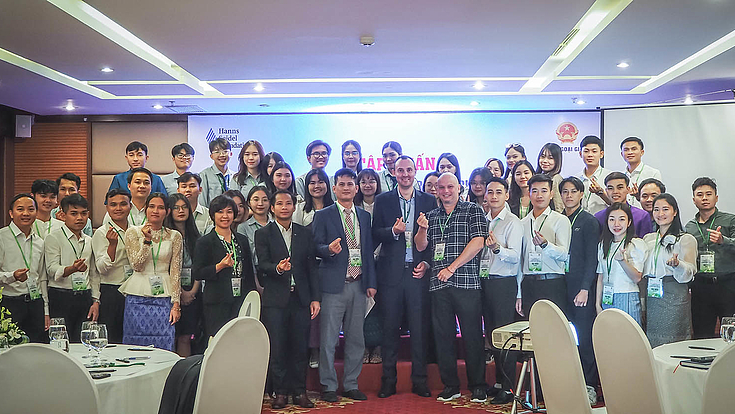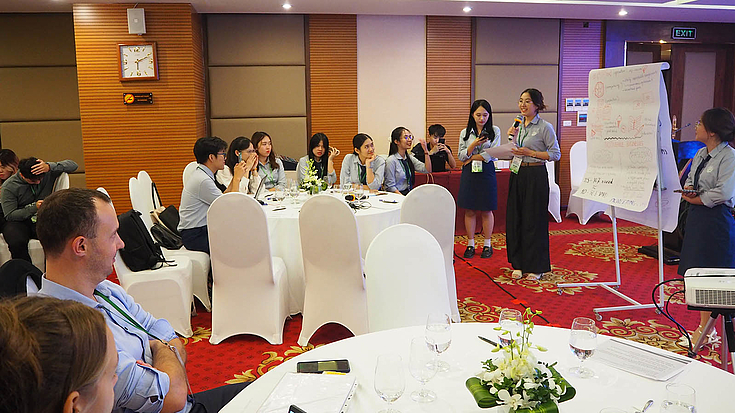Facilitate the Circular Economy Transition in ASEAN
Workshop on Circular Economy for young leaders of Vietnam, Lao PDR, and Cambodia
HSF
The two-day workshop initiated with an opening address delivered by Mr. Nguyen Dang Trung, Deputy Director General of the Department of Multilateral Economic Cooperation at the Ministry of Foreign Affairs, and Michael Siegner representing the Hanns Seidel Foundation. Both speakers emphasized the urgency to integrate Circular Economy models into Vietnam's economic framework to align with the Sustainable Development Goals (SDGs) and Vietnam's national action plan on climate change. They particularly highlighted the pivotal role that youth play in this process, pointing out the need to raise awareness and enhancing the capacities of young leaders regarding circular economy principles, opportunities, and waste management in Vietnam, Cambodia, and Lao PDR.
During the workshop, Steven Long, a sophisticated expert in Circular Economy and Waste Management based in Laos, delivered insightful presentations on the fundamentals and complexities of Circular Economy Models, as well as Waste and Plastic Management. Here he emphasized the work of various foundations against plastic pollution, such as the renowned Ellen MacArthur-Foundation. He vividly illustrated the disadvantages of the prevalent linear economy and its "take-make-waste" paradigm, helping participants internalize the principles of the Circular Economy. This learning experience was further enriched with examples of environmentally friendly production methods and sustainable brands, presenting diverse pathways for future action among the attending young diplomats and technicians. Mr. Long also presented his insights in a global and regional context, drawing from the examples of Germany and Japan, two countries actively engaged in implementing circular economies.
Furthermore, Mr. Long provided an in-depth examination of renewable energy resources and their impact on the planet, highlighting the crucial need to address the influence of fossil fuels on the environment. He stressed the significance of recognizing the potential of renewable energies in the energy transition and generation process.
HSF
The workshop featured various group activities, allowing the young participants to grapple with the existing challenges, opportunities, and developments in Laos, Cambodia, and Vietnam. Participants were given tasks to identify the implementation stages of circular economy principles at both the governmental policy and business levels in their respective home countries. Additionally, they pinpointed the primary opportunities and barriers in this transformative journey. This collaborative exercise proved to be an effective networking opportunity, fostering a deeper understanding of the transition approaches in neighboring countries within the ASEAN region and identifying potential avenues for cooperation.
The workshop ended with a field trip to the renowned Halong Bay. The UNESCO world heritage site serves as a reminder of the outcomes of linear economic growth, resulting in a "plastic pollution crisis," as stated by the World Bank. During the boat excursion, Steven Long provided a deep dive into different types of plastic pollution, the life cycles of different polluting products and possible measures that can be taken to combat the pollution of natural areas.
The Hanns Seidel Foundation is pleased with the successful execution of the young diplomats' workshop. Including young perspectives is essential when shaping a better and more sustainable tomorrow.


